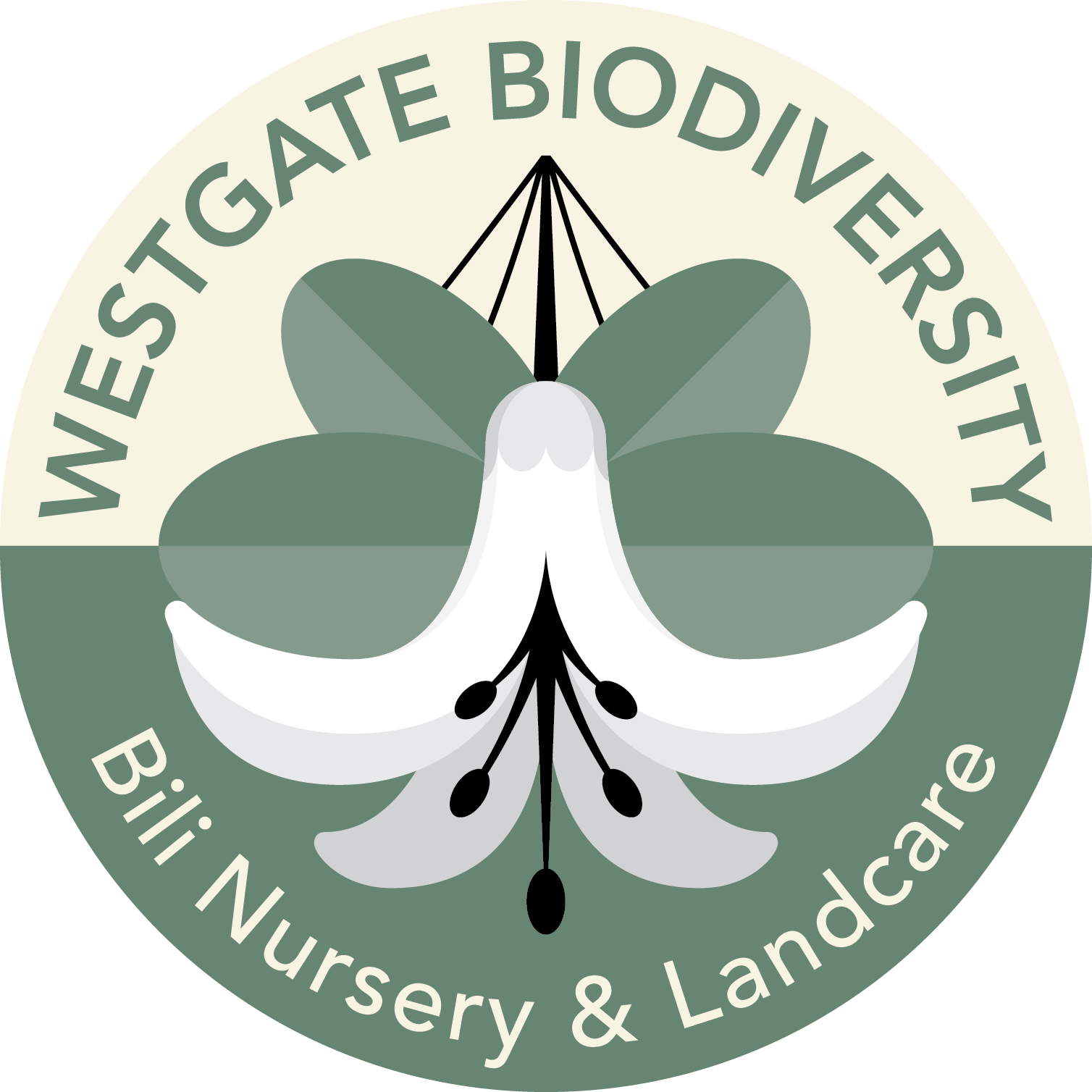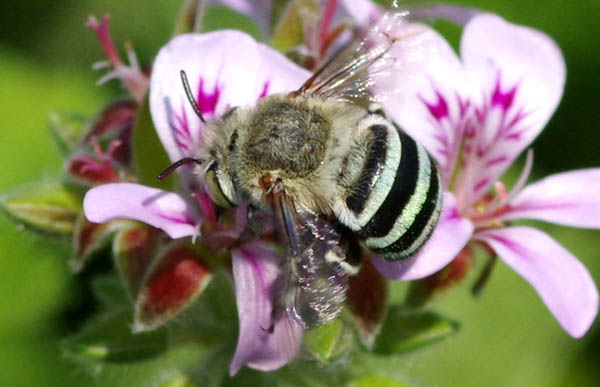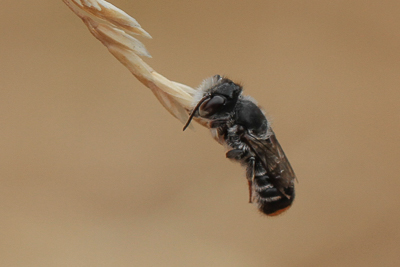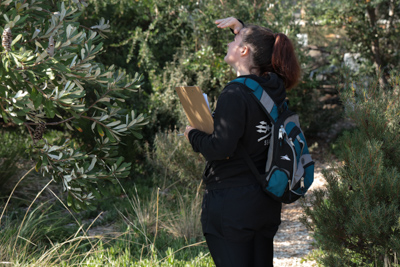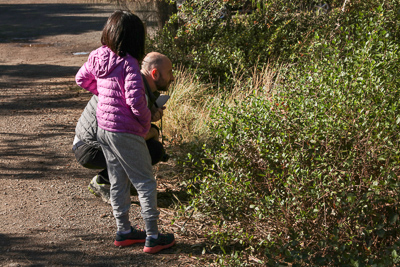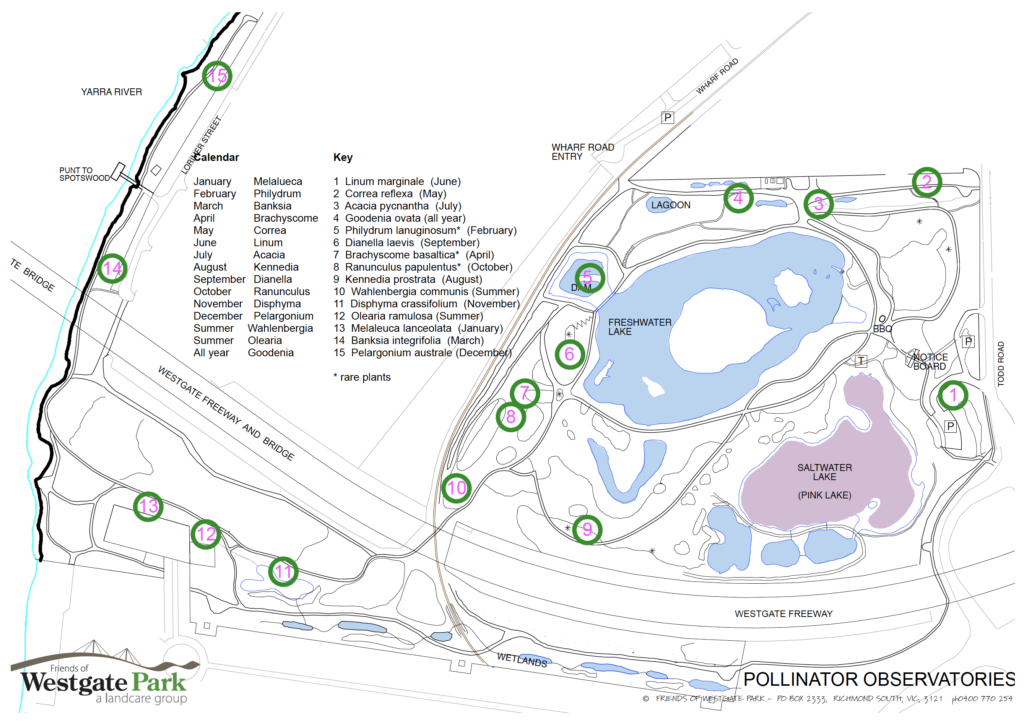Pollinators project findings
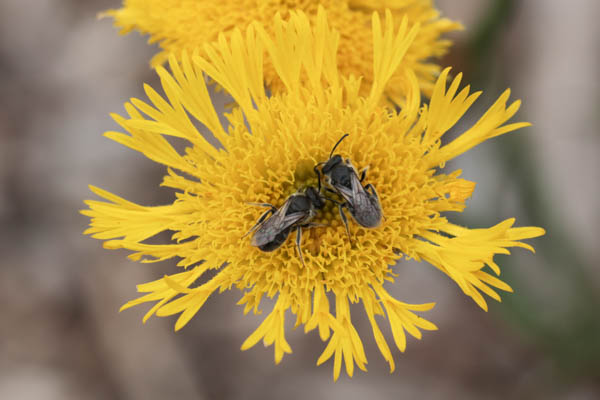
Invitation: Next Sunday, Sunday 27th October, Westgate Biodiversity will be wrapping up a two year research project conducted with RMIT – Providing for Pollinators. The project has been funded by the City of Melbourne and co-designed with (then) Friends of Westgate Park. At the workshop, Dr Luis Mata will present the findings of the project.
Here is the link to registration.
Background
A series of ‘pollination observatories’ were nominated by FoWP through the park. A different flowering plant was chosen for each month of the year. A range of different plants were chosen – shrubs, groundcovers, trees. They were also chosen on the basis of the existing health, abundance and persistence of those plants at particular locations.
RMIT researchers did monthly observations of each of the observatories. Seven workshops have been held to assist citizen scientists to identify and then observe insect pollinators at Westgate Park. The citizen science observations complemented the RMIT surveys and on several occasions the citizen scientists made observations new to the RMIT researchers.
For the last two years we have been observing and documenting the interactions between flowering plants and insect pollinators across a network of 12 ‘pollinator observatories’ in Westgate Park.
At this workshop, you will learn to identify several key insect pollinators that call Westgate Park home, including native and non-native bees and butterflies. We will then visit the pollinator observatories to make observations of plant-insect interactions.
Each time we have seen something unexpected just through observing more closely!
This is the final workshop of the ‘Providing for Pollinators’ project. We’re excited to share with you what we’ve learned about insect pollinators in Westgate Park and which plant species these pollinators are favouring.
We will also be celebrating the conclusion of the project with some food and a word or two.
Notes
– The workshop is suitable for both past attendees and first timers.
– The workshop consists of two consecutive sessions: the first at Port Education Centre and the second at Westgate Park. By registering, you agree to attend both sessions.
Session 1: Introduction to ‘Providing for Pollinators’ and the tools for monitoring them – held at Port Education Centre
Dr Luis Mata from RMIT will introduce you to a ‘Protocol to record ecological interactions between plants and pollinators using timed surveys‘ and a ‘Visual field guide for the identification of targeted pollinators’. These documents will be discussed and your questions about the field protocol and species identification encouraged. A handout questionnaire will test your capacity to successfully complete the field protocol and accurately identify the targeted insects. This is an open book shared session – not a scary test!
Session 2: Visit the pollinator observatories in Westgate Park
The workshop will move into Westgate Park to visit pollinator observatories and work with the tools learned in Session 1.
Providing for Pollinators is a research and community engagement collaboration between Westgate Biodiversity: Bili Nursery and Landcare (formerly Friends of Westgate Park and SKINC nursery) and the National Environmental Science Programme – Clean Air and Urban Landscapes Hub.
The project has been funded and supported by the City of Melbourne.
The Port Education Centre is kindly made available for the workshop by the Port of Melbourne.
FAQs – Getting there – so near, yet so far!
The Port Ed Centre is on the Port Melbourne side of the Yarra River. Set your GPS to 343 Lorimer St. Do not be led astray by your GPS to cross the Westgate Bridge! There is free car parking on Lorimer St.
Bus
Only bus 235 from Southern Cross Station operates on Sunday. Get off the bus at Defence Science & Technology (DSTO) and walk over the railway line to Port Ed Centre. (Note: the venue is about an hour’s walk from Southern Cross Station)
Bike
Port Ed and Westgate Park are a pleasant ride along the Yarra River. There is a shared path on the footpath along Lorimer St to Todd Rd, and a dedicated bike path along Lorimer St to Port Ed . There’s plenty of bike parking.
